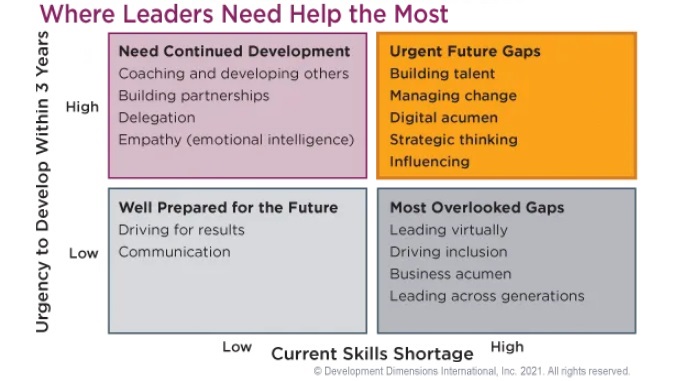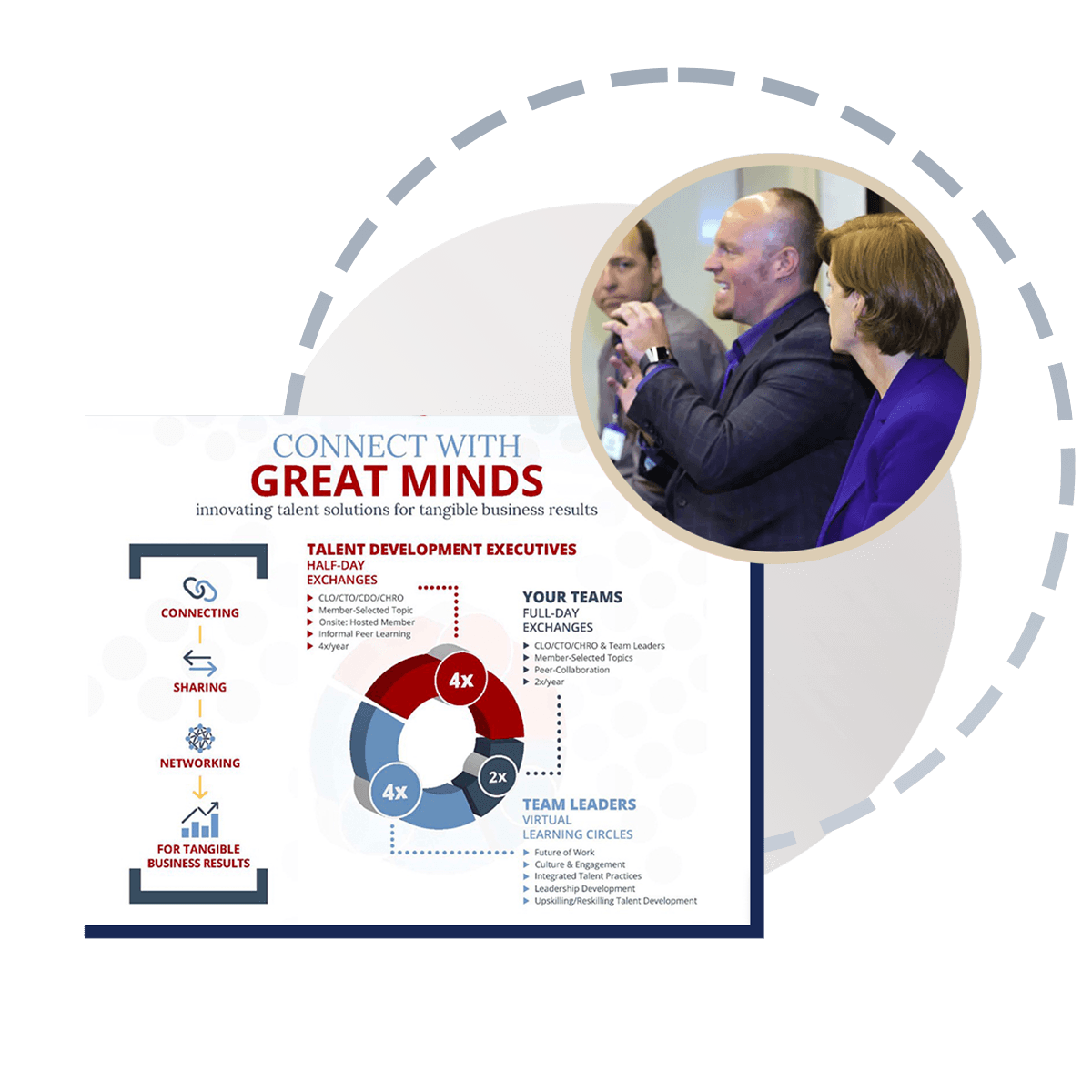This highlight video is from December 1, 2023 session Skills-First Leadership Development Programs. What’s Missing?
Session Focus: Open dialogue about current gaps in preparing managers for modern leadership challenges and explore innovative solutions.
Today's workplace is rapidly changing with the integration of automation, AI, remote work, and diverse team structures. Our session highlighted the urgent need for leadership development programs to evolve in order to effectively engage with the modern, highly skilled worker and lead complex, dynamic teams.

- Personalized development plans that blend organizational needs with individual personalities and growth areas
- Flexible on-the-job learning like stretch assignments, peer coaching and mentoring
- Engaging executives as champions to role model the cultural change
- Self-directed options that put employees in the driver’s seat
Key takeaways from the discussion include:
- Rapid Evolution of Leadership Development: There's a pressing need for leadership training to adapt quickly to effectively engage and lead in today’s complex work environments.
- Joint Responsibility in Development: Leadership development should be a collaborative effort, with both organizations and individuals sharing responsibility. This involves blending formal training with practical, on-the-job learning experiences.
- Customized Leadership Programs: Moving away from one-size-fits-all approaches, leadership programs should be tailored to align with both the strategic needs of the organization and the unique personalities, strengths, and growth areas of individuals.
The session also underlined the importance of personalized development plans, flexible learning on the job through methods like stretch assignments, and the role of executives in championing cultural change. Emphasizing self-directed learning options, the discussion concluded that leadership development is most effective when it is a shared journey between the organization and the individual, bridging the gap between formal training and real-world application for sustainable skill transformation.
